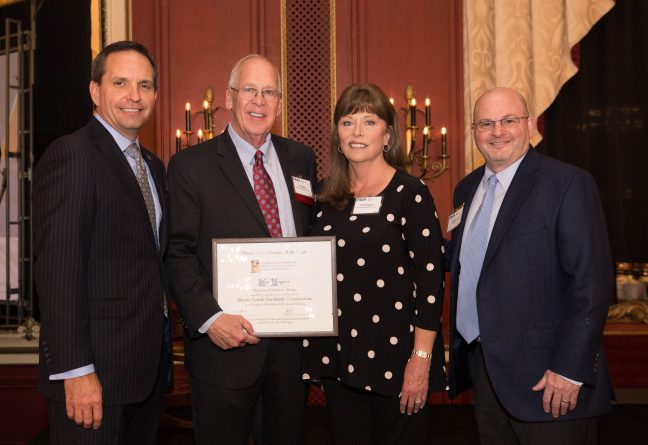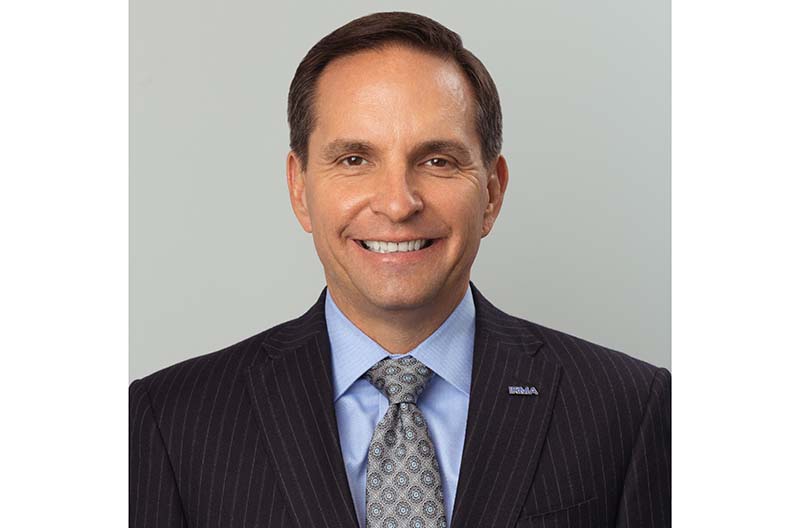The Illinois Retail Merchants Association and the Illinois Food Retailers Association merged at the end of September 2021. Since then, the IRMA has taken responsibility for all grocery members across the state, according to Rob Karr, president and CEO.
The two organizations had an overlap of members. The IFRA represented a majority of the independents while IRMA had more corporate participation. IRMA undertook all legislative work for grocers, so it was logical they merge.

Its members are facing the same challenges that are plaguing many retailers – supply chain issues, labor costs and access to labor.
Employment costs also are a rising concern for retailers. In 2018, Illinois passed a law that is slowing raising the minimum wage to $15 an hour. The wage was originally set at $8 and during that first year after the law passed, the minimum wage increased three times in the span of 366 days.
“We have a ramp to get there. We are currently at $12 per hour,” Karr explained. “That will go up to $13 an hour on Jan. 1…It will eventually reach $15 an hour by 2025.”
As grocers operate on a thin margin, Karr thinks the state is doing little to help with the rising costs of operations. Just a couple months ago, the state placed a one-year moratorium on its 1 percent grocery tax. The tax is scheduled to resume June 30.
“Mitigating inflation, which is a national problem, is not really something the state can really do,” Karr said. “The state did [suspend] the 1 percent grocery tax temporarily. That helps the consumer in the margins. But the margins on a grocery store are so thin already.”
Cook County Assessor’s Office, Karr added, does share the blame for increased costs of operating in the state.
“The assessor continues to push significant amounts of increasing property tax assessments on the commercial industrial sector, which hurts,” he said.
The IRMA also is working to mitigate unemployment insurance costs, which are going to hit employers harder next year, regardless of what is done. Illinois needs to find a way to solve the $1.36 billion in Title 12 borrowing, according to Carr.
“Like other states, Illinois took a Title 12 advance from the federal government to keep the trust fund solvent and keep paying benefits,” he said. “We have to figure out how to pay that back without putting too much strain on the retailers.”
If the state holds the debt for two consecutive years, it could lose out on major tax credits in the future. If the state holds the balance for two consecutive years, it begins to lose three-tenths of 1 percent of the FUTA tax credit until it’s resolved.
Karr said the goal should be focused on making sure the debt does not proceed past the first year. The state is certain to lose it this year. “Clearly, it is any additional costs, no matter what they are that impactful. Particularly in a low margin industry like grocery,” he said. “The costs that are associated with meeting the demands of the consumer during the pandemic have continued because consumers want to continue to want amenities like curbside pickup or delivery or those types of services. Those come at significant costs for the retailer.”
IRMA is gearing up for the state’s next major legislative session, which won’t take place until next year. As the association’s major event just wrapped up in October, this has become the primary focus.
The annual Luncheon and Meeting saw the crowning of 2022’s Illinois Retailer of the Year. Joe Koppeis, owner of Groceries of Southern Illinois, was this year’s recipient.
For more information, visit irma.org/ilfoodcouncil.

